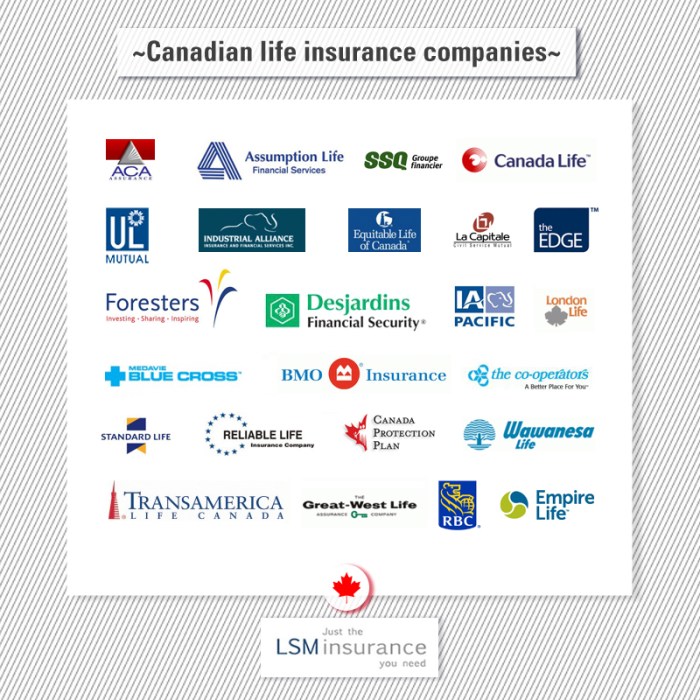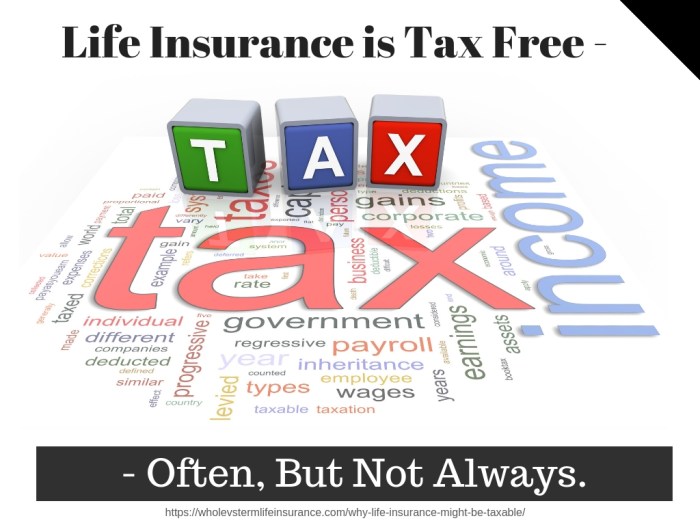Navigating the Canadian tax system can be complex, especially when it comes to insurance. A common question for many Canadians is whether life insurance premiums are tax deductible. The answer, as with most tax matters, isn’t a simple yes or no. Deductibility depends on several factors, including the type of policy, whether it’s for business or personal use, and specific circumstances. This guide will delve into the intricacies of life insurance premium tax deductibility in Canada, providing clarity and practical examples to help you understand your rights and responsibilities.
Understanding the tax implications of your life insurance is crucial for effective financial planning. This guide will explore the eligibility criteria for deducting premiums, comparing different policy types and their tax treatments, and highlighting the importance of proper documentation. We will also examine the tax implications for beneficiaries upon receiving death benefits and consider potential future changes in tax laws. By the end, you’ll have a comprehensive understanding of this often-confusing aspect of Canadian tax law.
Eligibility for Deductibility
In Canada, the deductibility of life insurance premiums hinges on the purpose for which the insurance is held. Unlike many other expenses, life insurance premiums aren’t generally deductible for personal insurance policies. Deductibility is primarily reserved for specific business or professional situations where the insurance policy directly relates to income-generating activities.
The Canada Revenue Agency (CRA) carefully scrutinizes claims for premium deductions, ensuring a clear link between the insurance and the taxpayer’s income-earning capacity. This means the policy must be demonstrably crucial to the individual’s business or profession, not simply a personal financial planning tool.
Types of Life Insurance Policies Eligible for Premium Deductions
Deductibility applies only to life insurance premiums paid on policies directly related to business activities. This typically involves key-person insurance or business-owned life insurance policies. Key-person insurance protects a business against financial losses resulting from the death of a crucial employee. Business-owned life insurance policies often serve as a funding mechanism for business debts or provide a death benefit to the business itself. Personal life insurance policies, designed to protect family members, are generally not eligible for premium deductions.
Examples of Deductible and Non-Deductible Premiums
Deductible Premiums: Imagine a small business owner who takes out a key-person life insurance policy on their most skilled employee. If that employee’s expertise is vital to the business’s continued operation and their death would cause significant financial hardship, the premiums paid for this policy are potentially deductible. The business can demonstrate a direct link between the insurance and the protection of its income-generating capabilities. Similarly, a corporation might take out a life insurance policy on a major shareholder. The death benefit would help to cover potential financial difficulties resulting from the loss of that shareholder’s investment and expertise.
Non-Deductible Premiums: Conversely, premiums paid on a personal life insurance policy taken out to protect a spouse and children are not deductible. This is because the policy’s benefits don’t directly relate to the generation of business income. Similarly, premiums for a policy on a family member who is not involved in the business are not deductible. The link between the insurance and business income is absent.
Specific Instances Illustrating Deductibility Rules
Consider a scenario where a sole proprietor, a highly skilled surgeon, purchases a life insurance policy. The policy is structured to pay off their business loans upon their death. In this case, the premiums may be deductible as the insurance directly protects the business’s financial stability. The death benefit directly mitigates the risk of the business incurring significant debt. Conversely, if the same surgeon purchases a separate policy solely for their family’s financial security, those premiums are not deductible, as the benefit is unrelated to the business’s income-generating activities. The connection to business income is not present.
Types of Life Insurance and Tax Deductibility
In Canada, the tax deductibility of life insurance premiums hinges largely on the type of policy held. While some policies offer no tax advantages regarding premiums, others may provide limited or specific deductibility under certain circumstances. Understanding these differences is crucial for effective financial planning.
The tax implications of life insurance premiums vary considerably depending on whether the policy is considered a personal insurance policy or a business insurance policy. This distinction significantly impacts the potential for tax deductions. Furthermore, the type of life insurance policy – term, whole, or universal – influences the extent of any tax benefits.
Term Life Insurance and Tax Deductibility
Premiums paid for term life insurance are generally not tax deductible for personal insurance policies. This type of policy provides coverage for a specified period (the term), after which it expires. The focus is solely on providing death benefit coverage during the defined term, and no cash value component accumulates. Therefore, no tax deductions are typically available for the premiums paid.
Whole Life Insurance and Tax Deductibility
Whole life insurance premiums are also generally not tax deductible for personal use. This policy type offers lifelong coverage and builds cash value over time. While the cash value component may grow tax-deferred, premiums themselves are not typically eligible for tax deductions. The potential tax benefits arise only upon surrender or death, not from the premiums paid.
Universal Life Insurance and Tax Deductibility
Similar to term and whole life insurance, premiums paid for universal life insurance policies are generally not tax deductible when used for personal insurance. Universal life insurance combines aspects of both term and whole life insurance, offering flexible premiums and adjustable death benefits. However, the premiums remain non-deductible for personal insurance purposes. The cash value component grows tax-deferred, but the premiums themselves are not considered tax deductible.
Tax Deductibility Comparison Table
| Type of Life Insurance | Premium Tax Deductibility (Personal Use) | Tax Implications (Generally) | Notes |
|---|---|---|---|
| Term Life Insurance | Not Deductible | Death benefit typically tax-free to beneficiary. | Pure death benefit coverage; no cash value. |
| Whole Life Insurance | Not Deductible | Death benefit typically tax-free to beneficiary; cash value grows tax-deferred. | Lifelong coverage with cash value accumulation. |
| Universal Life Insurance | Not Deductible | Death benefit typically tax-free to beneficiary; cash value grows tax-deferred. | Flexible premiums and death benefit; combines aspects of term and whole life. |
Business vs. Personal Life Insurance
The tax deductibility of life insurance premiums in Canada hinges significantly on whether the policy is considered personal or business-related. Understanding this distinction is crucial for maximizing tax efficiency. Personal life insurance premiums are generally not tax deductible, while business life insurance premiums can be, under specific circumstances.
The key difference lies in the purpose of the insurance policy. Personal life insurance protects your family and dependents in the event of your death. Business life insurance, conversely, serves various corporate needs, often related to key-person insurance, buy-sell agreements, or corporate debt financing. This fundamental difference in purpose directly impacts the tax treatment of the premiums paid.
Deductibility of Business Life Insurance Premiums
Business life insurance premiums can be deductible as a business expense if the policy directly benefits the corporation. This deductibility is subject to specific conditions and regulations Artikeld by the Canada Revenue Agency (CRA). The policy must be demonstrably linked to a legitimate business purpose, not simply a personal benefit for the shareholders or executives.
Situations Where Business Life Insurance Premiums Are Deductible
Several scenarios allow for the deductibility of business life insurance premiums. For example, premiums paid on a key-person insurance policy protecting against the loss of a crucial employee are often deductible. Similarly, premiums associated with a buy-sell agreement, facilitating the orderly transfer of ownership upon the death of a shareholder, are generally considered deductible business expenses. Finally, life insurance used as collateral for corporate debt can also lead to deductible premiums.
Examples of Tax Treatment of Business Life Insurance Premiums
Consider a small business heavily reliant on its CEO. A key-person life insurance policy is taken out, naming the company as the beneficiary. Premiums paid for this policy are generally deductible as a business expense because the policy directly mitigates the significant financial risk to the company should the CEO pass away. Conversely, if the same CEO purchases a personal life insurance policy with his family as beneficiaries, those premiums are not deductible as business expenses.
Another example involves a partnership using a life insurance policy as part of a buy-sell agreement. If one partner dies, the policy payout allows the surviving partner to purchase the deceased partner’s share of the business. The premiums paid towards this policy are generally deductible for the partnership as it facilitates the smooth continuation of the business.
Comparison of Tax Treatment: Personal vs. Business Life Insurance
The following points highlight the key differences in the tax treatment of personal and business life insurance premiums:
- Personal Life Insurance: Premiums are generally not deductible.
- Business Life Insurance: Premiums are deductible if the policy directly benefits the corporation and meets CRA guidelines. This often involves situations like key-person insurance, buy-sell agreements, or debt financing secured by the policy.
- Proceeds: Death benefits from both types of policies are generally tax-free to the beneficiary, except in certain specific circumstances such as policies used as collateral for loans.
Documentation and Record Keeping

Proper documentation is crucial for successfully claiming a deduction for life insurance premiums on your Canadian tax return. The Canada Revenue Agency (CRA) requires sufficient evidence to verify your claim, preventing potential delays or rejection. Maintaining organized records simplifies the process and protects your interests.
Keeping meticulous records of your life insurance premium payments is essential for supporting your tax deduction claim. This involves collecting and storing all relevant documentation in a readily accessible manner. The CRA may request this documentation at any time during an audit. Failing to provide adequate proof can result in the disallowance of your deduction.
Acceptable Documentation for Tax Purposes
Supporting documentation should clearly demonstrate the payment of premiums for qualifying life insurance policies. This typically includes official receipts or statements from your insurance provider. These documents should clearly show the policy number, the amount paid, the payment date, and the type of insurance. Bank statements or credit card statements showing the payment can also serve as supporting documentation, but should be accompanied by a policy statement or other documentation that clearly links the payment to the life insurance policy. For example, a bank statement showing a debit to “XYZ Insurance Company” would need to be supported by a policy statement from XYZ Insurance Company that shows the policy number and that the payment covers the premium.
Step-by-Step Guide for Documenting Life Insurance Premium Payments
- Gather all relevant documents: Collect all receipts, statements, and bank records related to your life insurance premium payments throughout the tax year.
- Organize your documents: Create a dedicated file or folder to store these documents. Consider organizing them chronologically or by policy number for easy retrieval.
- Verify the information: Ensure that each document clearly shows the policy number, the amount paid, the payment date, and the payer’s name (your name or the business name, if applicable).
- Keep digital copies: Create digital copies of all your documents. This provides a backup in case of loss or damage to the originals. Cloud storage or external hard drives are suitable options.
- Maintain records for at least six years: The CRA generally recommends keeping tax records for at least six years after the tax filing deadline. This allows sufficient time for potential audits or reassessments.
Changes in Tax Laws and Regulations

The deductibility of life insurance premiums in Canada is subject to change, influenced by evolving government policies and economic conditions. While currently limited to specific situations, such as business insurance, future adjustments to tax legislation could broaden or restrict these deductions. Understanding potential alterations is crucial for individuals and businesses relying on this tax benefit.
The Canadian government periodically reviews its tax code to address economic priorities and social objectives. These reviews might include reevaluating the tax treatment of various financial products, including life insurance. Factors like budget deficits, changing social welfare programs, and evolving views on personal finance could all play a role in influencing potential legislative changes.
Potential Future Implications of Tax Law Changes
Changes to the tax laws regarding life insurance premium deductibility could significantly impact individuals and businesses. For example, a broadening of deductibility might incentivize more Canadians to purchase life insurance, potentially boosting the insurance industry and providing greater financial security for families. Conversely, a restriction or elimination of the deduction could reduce the affordability of life insurance for some, particularly those relying on tax benefits to offset the costs. This could lead to decreased insurance coverage and potentially increased financial vulnerability for families in the event of a breadwinner’s death.
Hypothetical Scenarios Illustrating the Impact of Possible Changes
Let’s consider two hypothetical scenarios. First, imagine the government introduces a new tax credit for life insurance premiums paid by individuals, regardless of whether the policy is for business or personal purposes. This could make life insurance more accessible and affordable, potentially leading to higher rates of coverage across the population. The increased demand could also stimulate growth within the Canadian insurance sector.
Conversely, consider a scenario where the government decides to eliminate the existing deductibility for business life insurance premiums. This would increase the cost of such insurance for businesses, potentially leading some to reduce or eliminate their life insurance coverage. This could have negative implications for business continuity planning, particularly for smaller businesses where the loss of a key employee could be devastating. The impact would likely be felt more strongly by smaller businesses with limited financial resources to absorb the increased costs.
Closure

Successfully navigating the complexities of life insurance and tax deductibility requires careful attention to detail and a thorough understanding of relevant regulations. While the general rule is that personal life insurance premiums are not tax deductible, exceptions exist for business insurance and specific circumstances. Maintaining accurate records and seeking professional advice when needed are crucial steps in ensuring compliance and maximizing your tax benefits. Remember, this guide provides general information, and individual situations may require consultation with a qualified tax professional for personalized advice.
FAQ Section
Can I deduct premiums for a policy on my spouse?
Generally, no. Premiums for policies on your spouse are typically not deductible unless it’s part of a business arrangement.
What if my life insurance policy has a cash value component?
The tax treatment becomes more complex. The cash value component may be subject to tax implications, and professional advice is recommended.
Where can I find more detailed information on current tax laws?
Consult the Canada Revenue Agency (CRA) website for the most up-to-date information and publications.
Are there penalties for incorrectly claiming deductions?
Yes, the CRA can assess penalties and interest for inaccurate claims. Accurate record-keeping is essential.